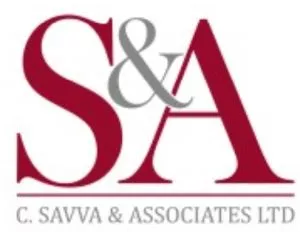- within Technology topic(s)
- in Asia
- within Technology topic(s)
- with readers working within the Media & Information industries
- within Technology topic(s)
- with Senior Company Executives and HR
The upcoming Markets in Crypto-Assets (MiCA) regulation is set to transform the European Union's crypto landscape by establishing a cohesive regulatory framework. Effective from December 30, 2024, MiCA aims to unify crypto-asset regulations across EU member states, bringing clarity and stability to the sector while significantly increasing the responsibilities of service providers, exchanges, and crypto-asset issuers. This change, driven by consumer protection, market transparency, and financial stability, has potential impacts across Europe, especially in countries like Cyprus, which actively participate in the digital finance sector.
Key Features of MiCA and Their Impact on the Crypto Market
One of the main goals of MiCA is to reduce regulatory fragmentation by implementing a "one-stop" licensing framework, meaning that a license granted in any EU country will permit crypto-asset service providers to operate across the entire bloc. This will foster greater ease of operation for crypto businesses, as they'll no longer need to navigate the different regulatory regimes of each EU country. Additionally, by mandating consistent disclosure and transparency practices, MiCA could attract more institutional investors into the European crypto market, enhancing liquidity and fostering sector growth.
MiCA will enforce transparency standards across crypto-asset activities, such as trading, custody, and issuance of assets, and is designed to prevent incidents like those seen in high-profile collapses of crypto firms (e.g., FTX) by mandating verifiable reserves and honest disclosure practices. With MiCA, crypto exchanges, wallets, and service providers are expected to prioritize secure asset custody, protect client funds, and act transparently about costs and risks involved in crypto transactions. This is particularly relevant in the context of Cyprus, where the crypto market has seen growing interest from both institutional and private investors.
MiCA in Cyprus: A Gateway to Regulated Crypto Services
Cyprus, as an EU member, must adopt MiCA standards, presenting opportunities for the local financial sector. The Cyprus Securities and Exchange Commission (CySEC), which temporarily halted new crypto applications to prepare for MiCA, will resume accepting applications under the new regime. This regulatory pause reflects Cyprus proactive approach to aligning with EU standards, which could position it as a leader in crypto-regulatory compliance within the Mediterranean region.
For Cypriot businesses, MiCA will simplify operations by replacing the patchwork of national regulations with a uniform set of rules. For example, Cypriot companies specializing in crypto-exchanges, custody, and other crypto services will need to ensure compliance with MiCA's comprehensive authorization requirements, covering everything from transparent auditing processes to robust anti-money laundering (AML) policies. These requirements also extend to consumer protection measures, including risk disclosure obligations and safe custody of client funds, which could enhance Cyprus appeal as a base for crypto activities under a clearly defined regulatory framework.
What MiCA Means for Crypto Firms Operating in Cyprus
With MiCA's cross-border "passporting" rights, firms authorized in Cyprus will be able to serve clients across the EU without needing additional licenses. This streamlined approach could position Cyprus as a strategic entry point for international crypto firms looking to access the European market. However, firms will also need to establish and maintain rigorous internal controls, especially around AML, continuity of service, and consumer protection protocols. Additionally, exchanges operating in Cyprus must disclose environmental impacts of crypto operations—a first of its kind in EU legislation.
A further layer of MiCA's impact comes with the introduction of the Digital Operational Resilience Act (DORA), which will come into force in January 2025. DORA focuses on digital resilience in financial services, mandating stringent information security requirements and risk management protocols. For crypto-asset service providers based in Cyprus, DORA adds another layer of compliance, requiring robust ICT governance frameworks and third-party risk management.
Preparing for the MiCA Era: Opportunities and Challenges for Cyprus
As Cyprus prepares for MiCA, it stands at the forefront of regulated crypto market innovation in the EU. For local crypto firms, compliance with MiCA will require a review of corporate structures, customer due diligence protocols, and IT infrastructure to meet operational standards. While this presents an upfront challenge, the long-term benefits of operating in a fully regulated environment are substantial, including increased investor confidence, streamlined licensing, and enhanced cross-border trading capabilities.
MiCA is a game-changer for the EU crypto market and for Cyprus, offering a harmonized regulatory approach that promises greater security, transparency, and stability in digital finance. Cyprus, with its established financial services sector and commitment to innovation, is well-positioned to leverage these changes, reinforcing its reputation as a gateway to Europe for compliant crypto services.
The content of this article is intended to provide a general guide to the subject matter. Specialist advice should be sought about your specific circumstances.




